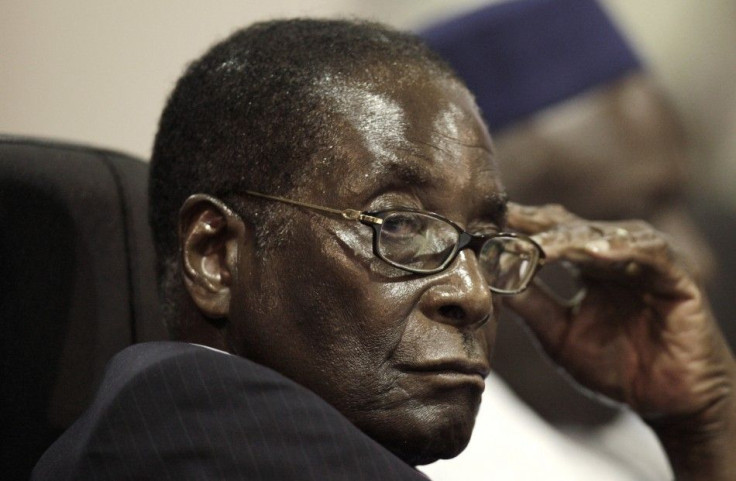Zimbabwe's Mugabe Rails Against Continued EU Sanctions

Zimbabwe reacted strongly to the European Union's decision to renew sanctions on President Robert Mugabe's government on Friday.
Despite the lift of travel bans and asset freezes on 51 people connected to Mugabe's ZANU-PF party, Zimbabwean leadership is still furious that the illegal sanctions were still in place.
The whole sanctions regime is illegal and racist, and we are not going to celebrate decisions meant to patronize us while they act as lords over our political affairs, ZANU-PF chief party spokesman Rugare Gumbo told Reuters.
It's very tragic that the EU is still being used by some of its members, principally Britain, in pursuing a neo-colonial agenda to remove ZANU-PF from power.
The sanctions were originally established when Mugabe formed Zimbabwe’s unity government following the controversial 2008 presidential election. On Friday, the EU determined sanctions will remain on 11 entities and 112 individuals, including Mugabe, who still “undermine human rights, democracy and the rule of law.”
Mugabe's ZANU-PF is committing grave human rights abuses against all perceived opponents, Daniel Bekele, Africa director at Human Rights Watch, said, defending the EU's decision.
Easing the sanctions now would send the wrong message and reinforce the repression and impunity in Zimbabwe.
Zimbabwe's continued effort at establishing fair elections is part of the process for getting the remaining sanctions lifted. ZANU-PF is working with the Southern African Development Community, an inter-governmental organization comprised of 15 African nations that aim to foster socio-economic, political and security cooperation. With help from the group, the party is writing a new constitution and preparing for next year's presidential elections.
[The EU] welcomes progress made towards the creation of a conducive environment for the holding of free, fair, peaceful and transparent elections,” the international body stated.
Mugabe has blamed the sanctions for his country's economic problems, which in turn, are heightening political and social tensions in Zimbabwe.
© Copyright IBTimes 2024. All rights reserved.











